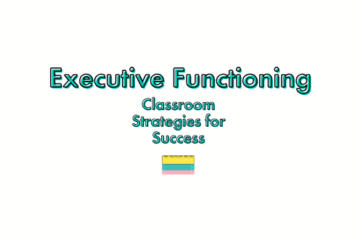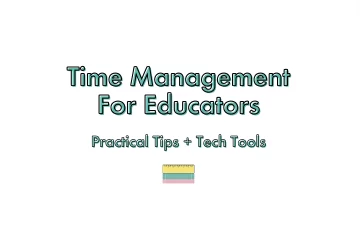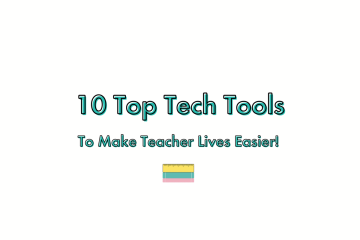🧠 Flexible Thinking: The Secret to Creative Problem-Solving
Cognitive flexibility—also known as flexible thinking—is a cornerstone of strong executive function. It’s the ability to pause and shift perspectives, adapt to new situations, and approach problems from different angles. In today’s busy world, flexible thinkers thrive because they are open to learning, show resilience when faced with setbacks, and get creative when challenges arise.
Why Flexible Thinking Matters
Imagine this scenario: a student is faced with a tricky math problem. They employ the strategies that they have learned, but none are working and they are starting to grow frustrated. When we can model flexible thinking, we teach our students to pause, reframe the problem, or try a new approach by getting curious and asking more questions.
Strong flexible thinking skills help individuals:
- Adapt to changes with less stress
- Tolerate ambiguity and uncertainty
- See multiple solutions to a problem
- Collaborate more effectively with others
And the amazing news is that like any executive function skill, flexible thinking can be nurtured through intentional practice.
Strategies to Build Flexible Thinking
1. Mental Opposites: Challenge Your Default Thinking
This strategy involves deliberately adopting a mindset opposite to your habitual approach to broaden your perspective.
Try This:
- Identify your typical response to a situation (e.g., cautious, optimistic).Life Skills Advocate
- Consciously adopt the opposite stance (e.g., adventurous, critical) and reassess the situation.
- Reflect on new insights gained from this alternative viewpoint.
By challenging your default thinking, you open up to diverse solutions and ideas. Psychology Today
2. Mindful Perspective-Taking: Expand Empathy and Understanding
Engaging in mindfulness practices can enhance your ability to consider multiple viewpoints and reduce cognitive rigidity.
Try This:
- During a disagreement or decision-making process, pause and take a few deep breaths.
- Reflect on the situation from another person’s perspective, considering their motivations and feelings.
- Acknowledge your own biases and remain open to alternative interpretations.
This practice fosters empathy and adaptability in complex social interactions. Verywell Mind
3. Spontaneity Sessions: Break Routine to Stimulate Flexibility
Incorporating spontaneous activities into your routine can disrupt habitual patterns and enhance mental agility.
Try This:
- Set aside time each week for unplanned activities, such as exploring a new neighborhood or trying a new hobby.
- Allow yourself to make decisions on the fly during these sessions, embracing uncertainty.
- Reflect on how these experiences influence your problem-solving approaches.
Engaging in spontaneous behavior can increase creativity and resilience. Time
Support Matters
Educators, coaches, and caregivers play a big role in developing cognitive flexibility. By modeling open-mindedness, encouraging exploration, and validating mistakes as part of learning, you create an environment where flexible thinking can flourish.
Next Step: Empower Flexible Learners
Cognitive flexibility is just one of many executive function skills that support independent learning and problem-solving. Want to deepen your toolkit? Explore our Executive Function Webinar —a practical, research-based course for educators, counselors, and coaches.
✅ Gain strategies to teach flexibility, focus, and planning
✅ Support learners in navigating challenges with confidence
✅ Spark creativity and resilience in every student
Ready to get started?
-> Check out our FREE Hack Your Brain Webinar
-> Let’s nurture the next generation of flexible, confident thinkers—one strategy at a time. ✨



